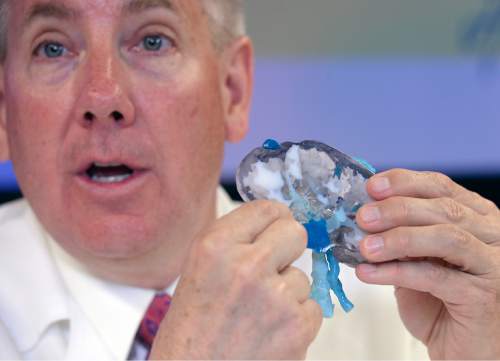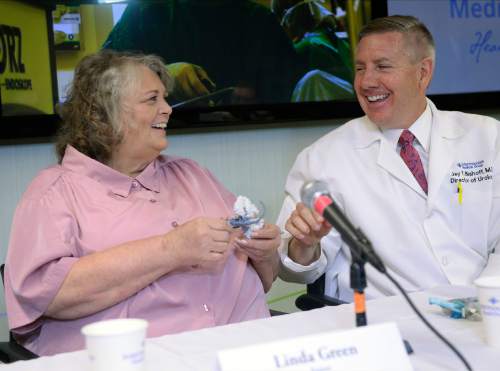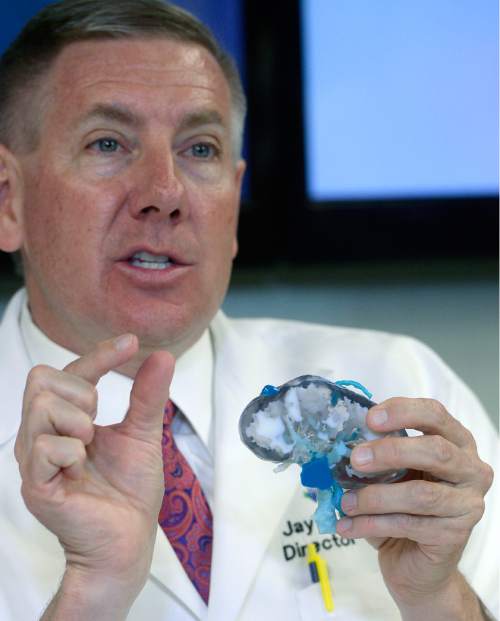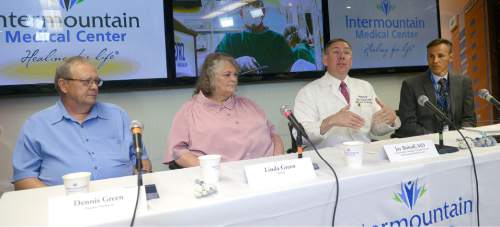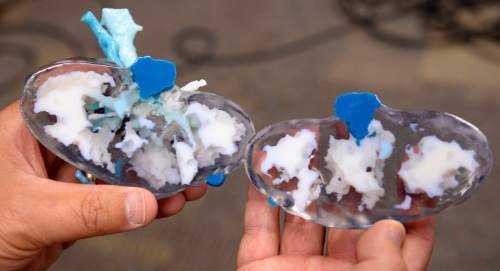This is an archived article that was published on sltrib.com in 2016, and information in the article may be outdated. It is provided only for personal research purposes and may not be reprinted.
Linda Green had anticipated the removal of her kidney since doctors first discovered the tumor there about eight years ago.
The tumor was small enough that doctors decided not to act for years, but in March they found it had more than doubled in size.
Green waited for the news that she would lose her kidney. But doctors at Intermountain Medical Center had a better idea.
They printed a 3-D model of her kidney — and the tumor — based on scans of the organ. That model provided a road map to determine the best way to remove the tumor, which was entangled in her kidney's vital veins and arteries, said Jay Bishoff, director of the Intermountain Urological Institute, at a Monday news conference.
"It's important to try to save kidneys in people every chance we can," Bishoff said. He used the model to prepare for the surgery, he added, and also referenced it during the surgery.
Green had surgery last month and doctors were able to remove the whole thing. The model helped doctors see a small portion of the tumor that wasn't visible on the scans.
"Dr. Bishoff was fully intent on saving my kidney, which he did and I appreciate that," Linda said. "Because he was so confident, I was confident in the fact that I was going to have a kidney."
The 3-D rendering of Green's kidney was produced using technology at the Intermountain Transformation Lab. Cory Smith, the lab's senior project manager and process architect, said this is the first time a 3-D model was used at Intermountain to prepare for a surgery.
"We're giving doctors additional visual tools to see the anatomy in a different way," Smith said.
He added that they are continuing to look for "appropriate cases" for these models moving forward, adding that oncology is a natural place for them to be effective.
The models are most helpful in the more complex cases, and Bishoff said "very few" kidney operations at Intermountain will require one.
Twitter @alexdstuckey


